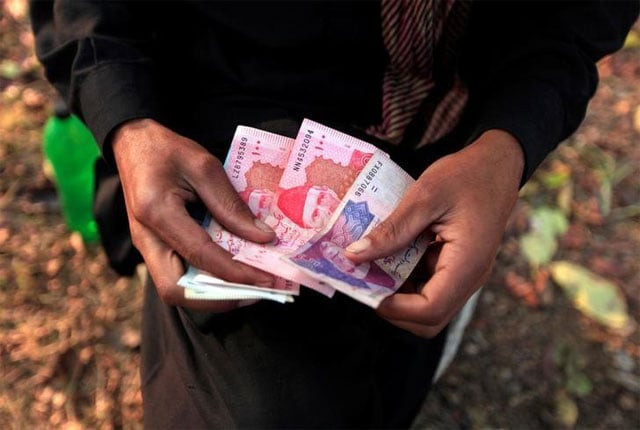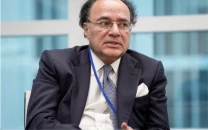Banks refuse to lend further for circular debt reduction
Say debt of govt’s holding company has already swelled to Rs550b

Say debt of govt’s holding company has already swelled to Rs550b. PHOTO: REUTERS
In the last two months of its five-year tenure that ended at the end of May 2018, the PML-N administration borrowed Rs180 billion from banks to bring down debt levels in the energy chain for a smooth supply of electricity.
Apart from this, it also imposed surcharges on the honest power consumers that were paying their bills regularly in order to pay for the cost of inefficiency and electricity theft borne by power distribution companies.
After PML-N era: Circular debt comes down from Rs573b to Rs499b
In a meeting of the Economic Coordination Committee held in May, the Ministry of Energy (Power Division) suggested borrowing of Rs50 billion from commercial banks in a fresh financing facility to be arranged by the Power Holding Private Limited (PHPL). The ECC endorsed the suggestion.
However, a senior government official told The Express Tribune that the government could not press ahead with the plan as banks were unwilling to extend more financing to PHPL, which already had huge debts in its books.
He revealed that the Ministry of Finance had formed a consortium of banks for raising the proposed financing, but two banks pulled out of the group later. The banks were of the view that the debt owed by PHPL had piled up to Rs550 billion and they could not provide more loans.
PHPL is a public-sector entity without assets and is responsible for arranging the required loan. The financing is utilised for clearing liabilities of distribution companies against the Central Power Purchasing Agency-Guarantee and other sector entities.
Circular debt swells Rs40 billion in just three weeks
“The finance ministry is in the process of negotiating a deal with another consortium of banks, but the effort has not met success so far,” the official said. In the energy chain, state-run oil marketing company Pakistan State Oil (PSO) was facing the spectre of default as its receivables had swelled to Rs330 billion. The government had committed to pay Rs25 billion out of borrowing from commercial banks in May, but the money was still awaited.
Power producers were not even paying for oil supply from PSO from their collection of electricity bills. They were major defaulters of the oil marketing company. In a bid to boost recoveries, the PML-N government had burdened power consumers with surcharges of Rs2.3 per unit, which inflated their electricity bills.
However, despite imposing the surcharges, the circular debt in the energy chain is still a looming threat for the incoming government.
In the ECC meeting held on May 24, PML-N economic managers also acknowledged that financial position of the power sector was at a critical level due to various reasons.
These included less-than-satisfactory performance in terms regulatory benchmarks pertaining to losses and recovery, unavailability of subsidy and absence of a detailed tariff determination, but now it had been notified and its effect would start emerging in the next few months. The ECC was also informed that increase in energy sales following a widening of the generation base had also contributed to the circular debt build-up.
Published in The Express Tribune, July 24th, 2018.
Like Business on Facebook, follow @TribuneBiz on Twitter to stay informed and join in the conversation.



















COMMENTS
Comments are moderated and generally will be posted if they are on-topic and not abusive.
For more information, please see our Comments FAQ